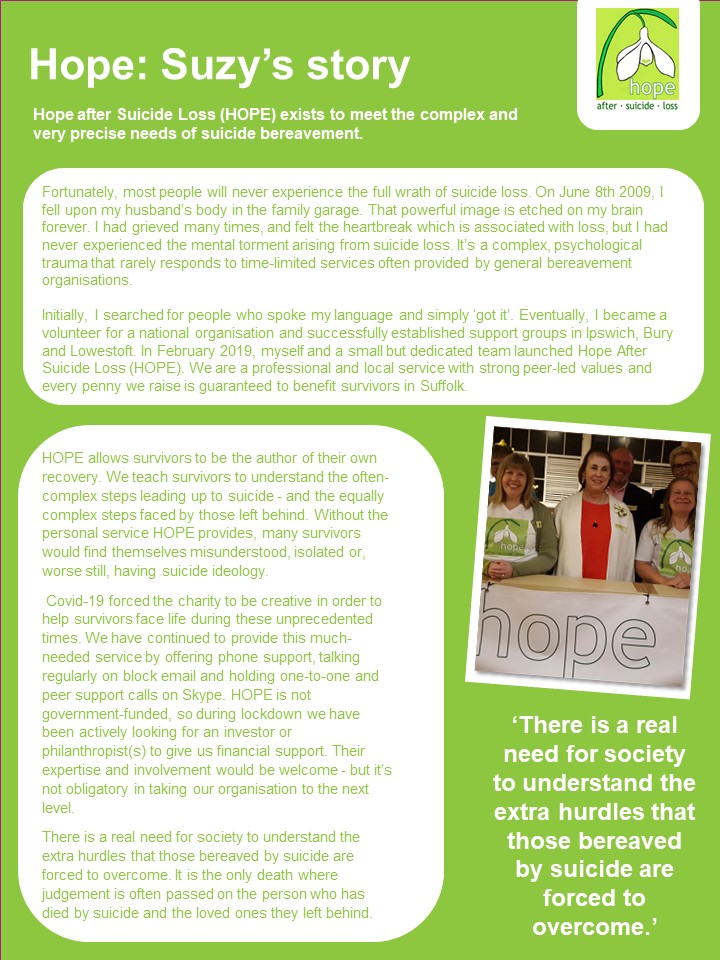Hope after Suicide Loss (HOPE) exists to meet the complex and very precise needs of suicide bereavement. You can read Suzy’s story below.

To submit your own case study, email [email protected]. We’d love to help spread the word about your organisation.
Full-text version:
Fortunately, most people will never experience the full wrath of suicide loss. On June 8th 2009, I fell upon my husband’s body in the family garage. That powerful image is etched on my brain forever. I had grieved many times, and felt the heartbreak which is associated with loss, but I had never experienced the mental torment arising from suicide loss. It’s a complex, psychological trauma that rarely responds to time-limited services often provided by general bereavement organisations.
Initially, I searched for people who spoke my language and simply ‘got it’. Eventually, I became a volunteer for a national organisation and successfully established support groups in Ipswich, Bury and Lowestoft. In February 2019, myself and a small but dedicated team launched Hope After Suicide Loss (HOPE). We are a professional and local service with strong peer-led values and every penny we raise is guaranteed to benefit survivors in Suffolk.
HOPE allows survivors to be the author of their own recovery. We teach survivors to understand the often-complex steps leading up to suicide – and the equally complex steps faced by those left behind. Without the personal service HOPE provides, many survivors would find themselves misunderstood, isolated or, worse still, having suicide ideology.
Covid-19 forced the charity to be creative in order to help survivors face life during these unprecedented times. We have continued to provide this much-needed service by offering phone support, talking regularly on block email and holding one-to-one and peer support calls on Skype. HOPE is not government-funded, so during lockdown we have been actively looking for an investor or philanthropist(s) to give us financial support. Their expertise and involvement would be welcome – but it’s not obligatory in taking our organisation to the next level.
There is a real need for society to understand the extra hurdles that those bereaved by suicide are forced to overcome. It is the only death where judgement is often passed on the person who has died by suicide and the loved ones they left behind.